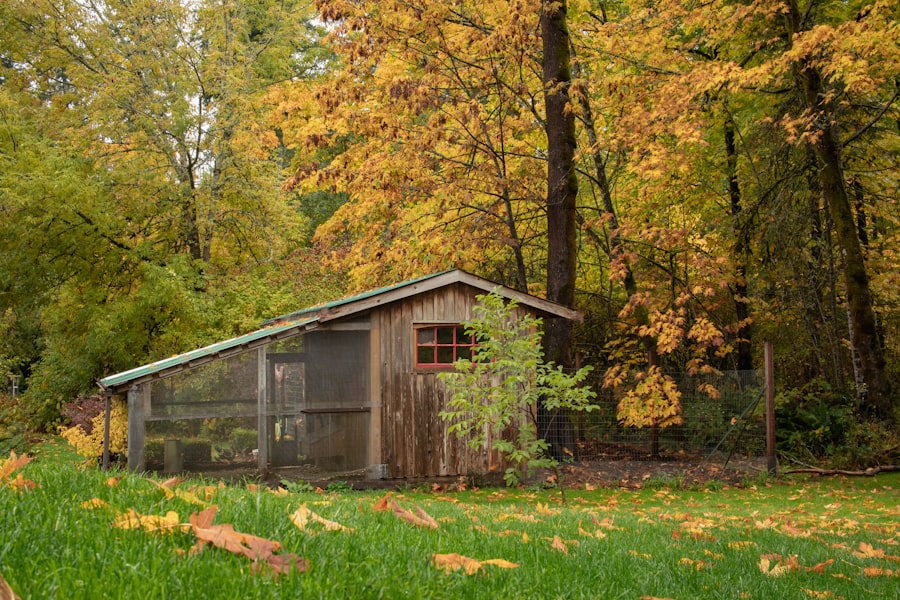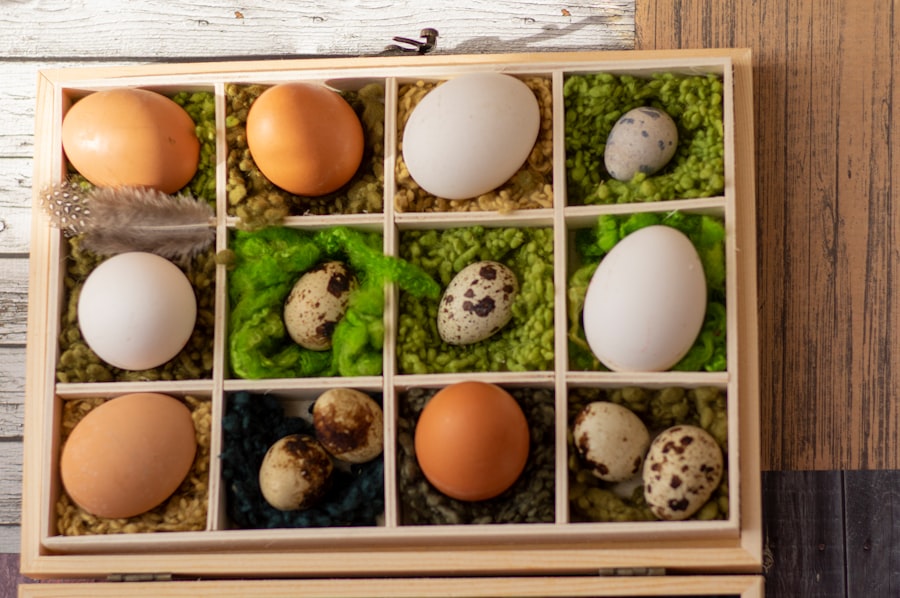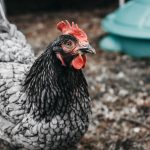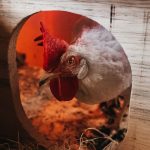When establishing a poultry farm, several initial costs must be considered. The primary investment is in a suitable poultry house or coop, which can range from a small structure for a backyard flock to a larger, more complex building for commercial operations. Essential equipment such as feeders, waterers, nesting boxes, and heating lamps are also required to ensure the health and well-being of the birds.
The cost of purchasing the birds themselves varies depending on the breed and quantity chosen. Additionally, budgeting for initial feed and bedding supplies is necessary to get the flock started. Feed and bedding represent ongoing expenses in poultry farming.
The type and quantity of feed required depend on factors such as the birds’ age, breed, and intended purpose (e.g., egg production or meat). A reliable source of clean water is crucial, which may involve purchasing waterers and establishing a regular water supply system. Bedding materials, such as straw, wood shavings, or sand, are important for maintaining flock health and hygiene.
The quality of bedding should not be compromised, as it plays a significant role in the overall well-being of the birds.
Table of Contents
- 1 Feed and Water
- 2 Housing and Bedding
- 3 Medical Expenses
- 4 Predation Protection
- 5 Egg Incubation and Chick Rearing
- 6 Miscellaneous Expenses
- 7 FAQs
- 7.1 What are the initial costs of keeping chickens?
- 7.2 What are the ongoing costs of keeping chickens?
- 7.3 How much does chicken feed cost?
- 7.4 Are there any unexpected costs associated with keeping chickens?
- 7.5 Do different breeds of chickens have different costs?
- 7.6 Are there any cost-saving measures for keeping chickens?
Key Takeaways
- Initial Costs
- Purchase of chicks or hatching eggs
- Brooder setup
- Heat lamp and thermometer
- Feeder and waterer
- Chick starter feed
- Feed and Water
- Regular supply of chick starter feed
- Clean water at all times
- Access to grit for digestion
- Potential additional costs for treats or supplements
- Monitoring of feed consumption and adjusting as needed
- Housing and Bedding
- Coop or brooder setup
- Bedding material such as straw or wood shavings
- Regular cleaning and maintenance of coop
- Potential costs for additional nesting boxes or roosts
- Protection from drafts and predators
- Medical Expenses
- Vaccinations and deworming
- Potential costs for veterinary care
- First aid supplies
- Parasite control
- Health supplements as needed
- Predation Protection
- Secure fencing or coop
- Predator-proofing measures
- Potential costs for predator deterrents
- Regular checks for signs of predators
- Potential costs for predator control measures
- Egg Incubation and Chick Rearing
- Incubator or broody hen for hatching eggs
- Additional feed and water for broody hen
- Potential costs for egg turning equipment
- Brooder setup for newly hatched chicks
- Potential costs for chick rearing supplies
- Miscellaneous Expenses
- Lighting for coop
- Egg collection and storage supplies
- Potential costs for egg washing equipment
- Replacement of worn-out equipment
- Potential costs for additional accessories or upgrades
Feed and Water
Feed Requirements
The type and quantity of feed required for your poultry flock depend on the age, breed, and purpose of your birds. For instance, layers require a different type of feed than broilers. The amount of feed needed also varies depending on factors such as the season, temperature, and activity level of the birds. Investing in high-quality feed is crucial to ensure your birds receive the necessary nutrients for growth and production.
Water Supply
Providing a clean and reliable source of water for your birds at all times is essential. This may involve investing in waterers and setting up a system for regular water supply.
Additional Supplements and Medications
In addition to regular feed and water, you may need to budget for additional supplements or medications for your flock. These could include items such as grit, oyster shells, or vitamins to ensure your birds remain healthy and productive. It’s important to factor in these additional costs when planning your budget for feed and water expenses.
Housing and Bedding

The housing and bedding for your poultry flock are crucial for their health and well-being. The type of housing you choose will depend on the size of your flock and your specific needs. For a small backyard flock, a simple coop with nesting boxes and roosting perches may be sufficient.
However, for a larger commercial operation, a more complex building with climate control and ventilation may be necessary. It’s important to invest in a sturdy and secure structure to protect your birds from predators and the elements. In terms of bedding, it’s important to provide a clean and comfortable environment for your birds.
The type of bedding you choose will depend on factors such as availability, cost, and ease of cleaning. Common options include straw, wood shavings, or sand. It’s important to regularly clean and replace the bedding to prevent the buildup of waste and bacteria.
Additionally, investing in high-quality bedding can help prevent health issues such as respiratory problems or foot injuries in your flock.
Medical Expenses
Medical expenses are an important consideration when raising poultry. Just like any other animal, chickens can become ill or injured and may require veterinary care. It’s important to budget for routine medical expenses such as vaccinations, deworming, and parasite control.
Additionally, you may need to invest in medications or supplements to maintain the health of your flock. It’s important to have a plan in place for addressing any medical issues that may arise, as prompt treatment can be crucial for the well-being of your birds. In addition to routine medical expenses, it’s important to have a contingency plan for unexpected medical emergencies.
This may involve setting aside funds for potential surgeries or specialized care for individual birds. It’s also important to have a good working relationship with a veterinarian who is knowledgeable about poultry care. Having access to professional advice and treatment can be invaluable when it comes to maintaining the health of your flock.
Predation Protection
Protecting your poultry flock from predators is essential for their safety and well-being. Predators such as foxes, raccoons, hawks, and even domestic pets can pose a threat to your birds. It’s important to invest in secure fencing and housing to prevent predators from gaining access to your flock.
Additionally, you may need to consider other deterrents such as motion-activated lights or sound devices to scare off potential threats. In addition to physical barriers, it’s important to be vigilant and proactive in protecting your flock from predators. This may involve regularly inspecting the perimeter of your property for signs of intrusion and addressing any potential weak points in your defenses.
It’s also important to be aware of the habits and behaviors of local predators so that you can take appropriate measures to deter them from targeting your flock.
Egg Incubation and Chick Rearing

Incubation and Breeding
If you plan to hatch your own chicks, you’ll need to invest in an incubator. There are various types available, ranging from small tabletop models for hobbyists to larger cabinet-style units for commercial operations. You’ll also need to budget for the cost of eggs or breeding stock.
Housing and Equipment
Once the chicks hatch, you’ll need to provide them with suitable housing and equipment for rearing. This may involve investing in brooders, heat lamps, feeders, and waterers specifically designed for young chicks.
Feed and Bedding
You’ll also need to budget for the cost of feed and bedding for the growing chicks. It’s essential to provide a warm and safe environment for young chicks to ensure their health and development.
Miscellaneous Expenses
In addition to the major expenses outlined above, there are several miscellaneous expenses to consider when raising poultry. This may include items such as cleaning supplies, maintenance costs for equipment and housing, and transportation expenses for purchasing feed or supplies. Additionally, you may need to budget for marketing and packaging materials if you plan on selling eggs or meat from your flock.
It’s also important to consider the cost of labor when planning your budget for poultry farming. Whether it’s your own time or hired help, there are costs associated with caring for a flock on a daily basis. This may include tasks such as feeding, watering, cleaning, collecting eggs, and general maintenance of the housing and equipment.
In conclusion, starting a poultry farm involves several initial costs such as housing, equipment, birds, feed, water, bedding, medical expenses, predation protection, egg incubation, chick rearing, and miscellaneous expenses. It’s important to carefully consider these expenses when planning your budget for poultry farming in order to ensure the success and sustainability of your operation. By being proactive in addressing these costs and investing in the health and well-being of your flock, you can set yourself up for a successful poultry farming venture.
If you’re considering keeping chickens, you may be wondering how much it will cost. According to a helpful article on Poultry Wizard, the cost of keeping chickens can vary depending on factors such as feed, housing, and healthcare. For more information on how to properly care for your chickens, check out this article on renting a chicken coop.
FAQs
What are the initial costs of keeping chickens?
The initial costs of keeping chickens include purchasing a coop, feeders, waterers, bedding, and of course, the chickens themselves. These costs can vary depending on the size and quality of the items purchased.
What are the ongoing costs of keeping chickens?
The ongoing costs of keeping chickens include purchasing chicken feed, bedding, and any necessary medical care. Additionally, there may be costs associated with maintaining the coop and replacing any worn-out equipment.
How much does chicken feed cost?
The cost of chicken feed can vary depending on the type and quality of the feed. On average, a 50-pound bag of chicken feed can cost between $15 to $30, depending on the brand and ingredients.
Are there any unexpected costs associated with keeping chickens?
There may be unexpected costs associated with keeping chickens, such as veterinary bills for sick or injured chickens, predator-proofing the coop, or unexpected repairs to the coop or equipment.
Do different breeds of chickens have different costs?
Yes, different breeds of chickens can have different costs associated with them. Some breeds may be more expensive to purchase initially, while others may have higher ongoing costs due to their specific dietary or medical needs.
Are there any cost-saving measures for keeping chickens?
Some cost-saving measures for keeping chickens include buying feed in bulk, using homemade or recycled materials for coop construction, and practicing preventative health care to minimize veterinary bills. Additionally, some chicken owners choose to sell eggs or meat from their chickens to offset the costs of keeping them.
Meet Walter, the feathered-friend fanatic of Florida! Nestled in the sunshine state, Walter struts through life with his feathered companions, clucking his way to happiness. With a coop that’s fancier than a five-star hotel, he’s the Don Juan of the chicken world. When he’s not teaching his hens to do the cha-cha, you’ll find him in a heated debate with his prized rooster, Sir Clucks-a-Lot. Walter’s poultry passion is no yolk; he’s the sunny-side-up guy you never knew you needed in your flock of friends!







